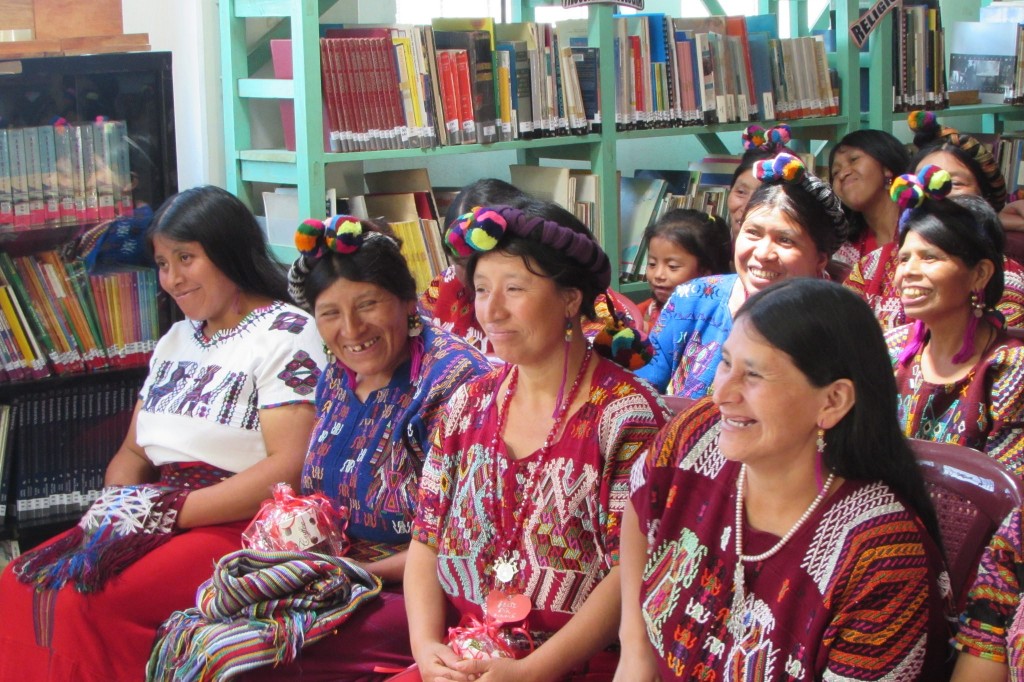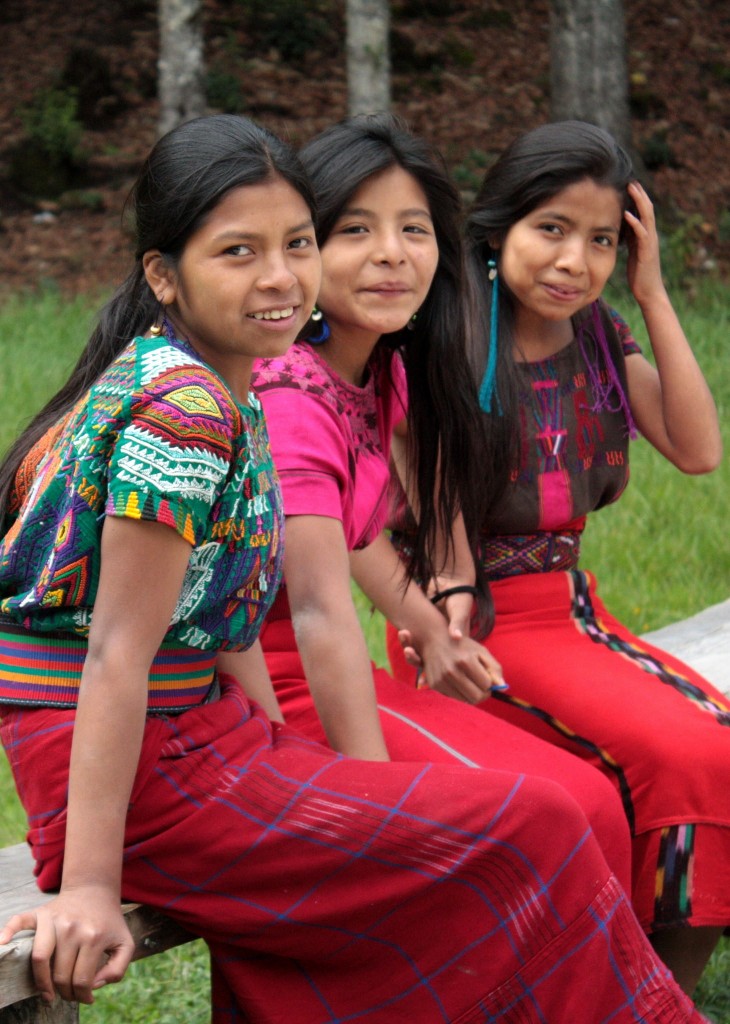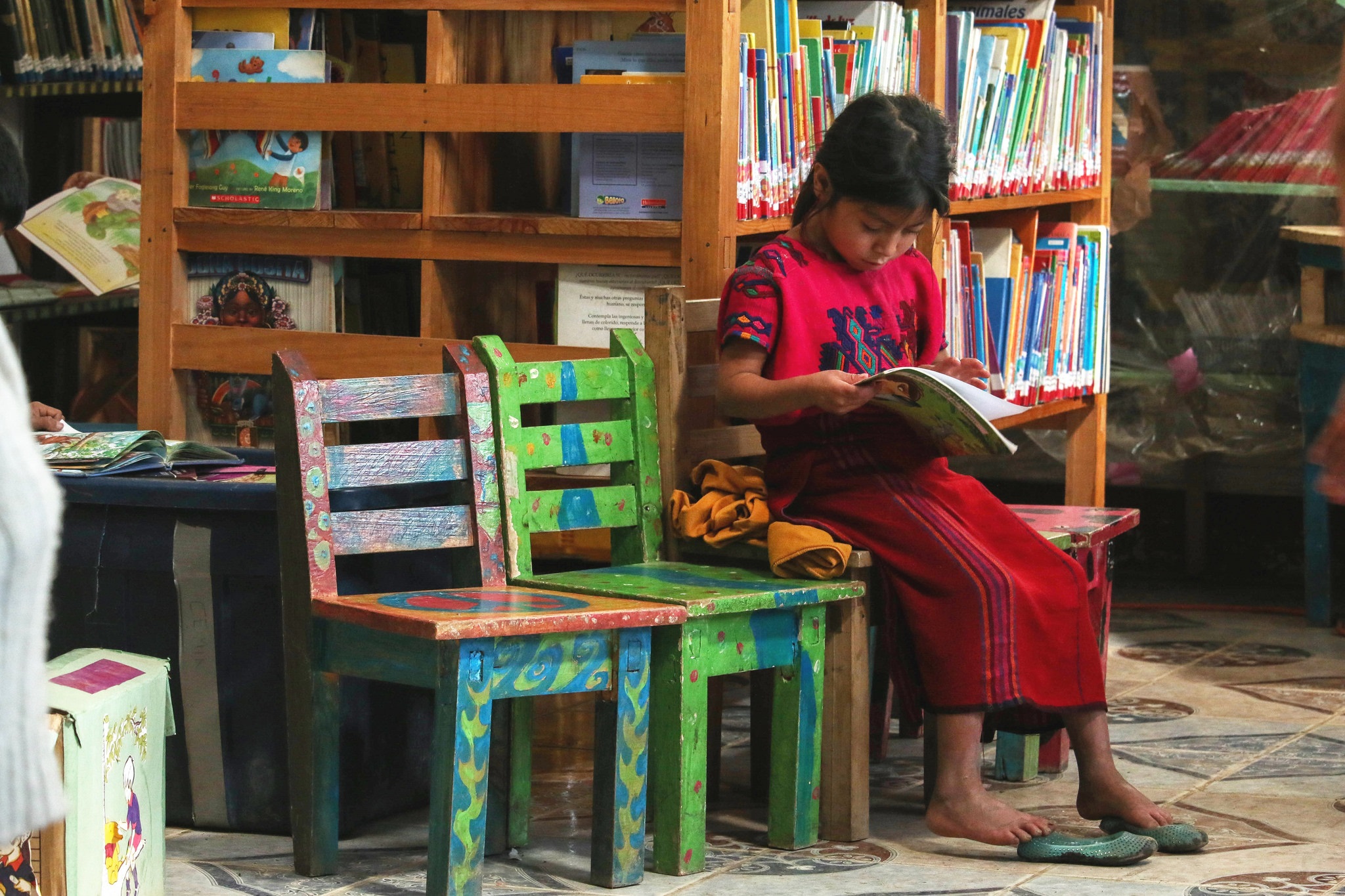
Mission
Limitless Horizons Ixil creates opportunities for the indigenous youth, women, and families of Chajul, Guatemala to develop the academic and professional skills needed to effect change in their lives and community.
Life Challenges of the Women Served
Chajul, El Quiché, Guatemala was devastated by the 36-year-long Guatemalan Civil War during which violence against the indigenous Ixil population amounted to genocide and 70 – 90 percent of Ixil villages were razed. Post-traumatic stress disorder and alcoholism have contributed to elevated rates of violence against women. Residents continue to struggle to make a living. Two out of three people are faced with food insecurity and 93 percent live in poverty. During the war, few had access to education – adults have completed just 3.3 years of formal education on average. Due to unsanitary living conditions, intense smoke inhalation from cooking over open fires, and diets that consist primarily of corn, the three leading causes of death are respiratory problems (36 percent), intestinal infections (12 percent) and diabetes (9 percent).
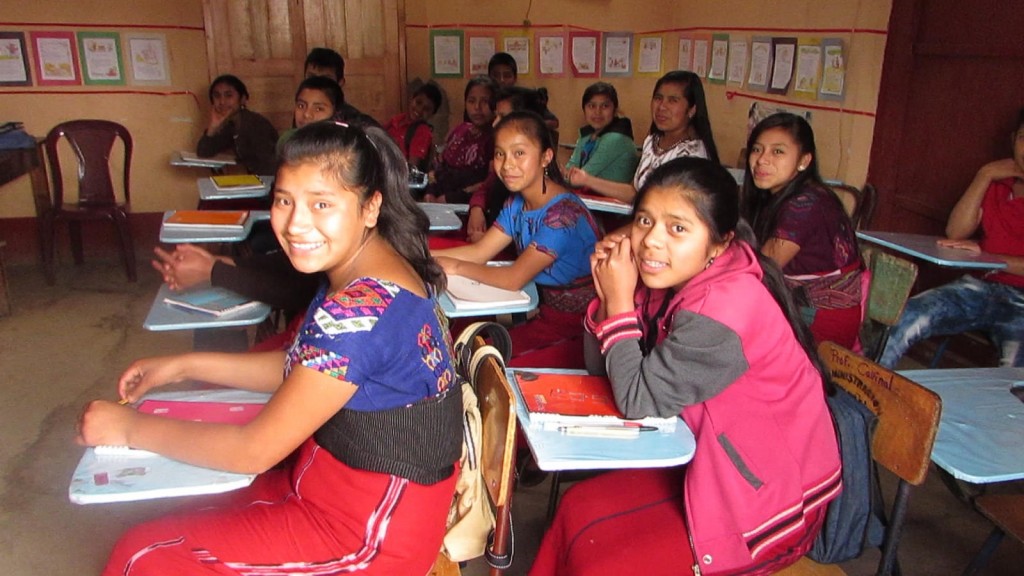 Poverty, gender and ethnicity intersect to create significant obstacles to girls’ education and empowerment. While this is the first generation of Maya Ixil in Chajul to attend school, significant cultural and economic barriers still prevent them from completing their education. These barriers include the cost of schooling, the opportunity cost of not working, the expectation that girls perform household duties, the perception among families of a low return on investment for girls’ education, and teenage marriage and pregnancy. The low rates constitute a crisis and the largest impediment to poverty alleviation in Chajul.
Poverty, gender and ethnicity intersect to create significant obstacles to girls’ education and empowerment. While this is the first generation of Maya Ixil in Chajul to attend school, significant cultural and economic barriers still prevent them from completing their education. These barriers include the cost of schooling, the opportunity cost of not working, the expectation that girls perform household duties, the perception among families of a low return on investment for girls’ education, and teenage marriage and pregnancy. The low rates constitute a crisis and the largest impediment to poverty alleviation in Chajul.
All families in Chajul are faced with poverty and the resulting barriers to education. Only 11 percent of children graduate from middle school and a mere 3 percent of girls graduate from high school. Seventy-eight percent of Guatemalans ages 15 and older are literate, but only 55 percent of indigenous adult females are literate. The effect of the lack of girls’ education is illustrated by these low literacy rates, lack of women’s participation in the workforce, and the lack of female authority in both the political and domestic realms. In particular, lack of female authority in the home perpetuates gender inequality from generation to generation, as fathers make decisions and model behaviors that keep daughters from achieving educational and economic empowerment.
By age of 20, half of all Guatemalan women are married and 54 percent of indigenous women are mothers. The practice of early marriage hinders school enrollment: only 3 percent of married 15 – 19-year-old females in Guatemala are enrolled in school, versus more than 40 percent of unmarried females. Girls who have the opportunity to attend middle or high school struggle with lack of educational resources, lack of academic and career support from parents and teachers, lack of Spanish language skills, poor bathroom facilities, long walking distances between home and school, crowded classrooms, high teacher absence rates, and short four-hour school days that fail to prepare them for national exams.
There have been improvements in both Chajul and Guatemala in attitudes towards girls’ education over the last few years, but girls still face economic and cultural roadblocks. Poor families cannot afford to send their children to school. If they send one child, it will be the eldest son. Many families refuse to support their female children in their education, and opportunities for scholarships and careers beyond school continue to favor boys and men.
Despite these odds, girls in Chajul are motivated to overcome these impediments. The top reasons for wanting to study are to have options, to have a better life than their parents, to not suffer like their parents, to speak Spanish, to have a job with a real salary, and to gain knowledge. These girls know what research has proven: when girls go to school, they acquire economic opportunity and learn to make choices that benefit their families and communities.
The Project
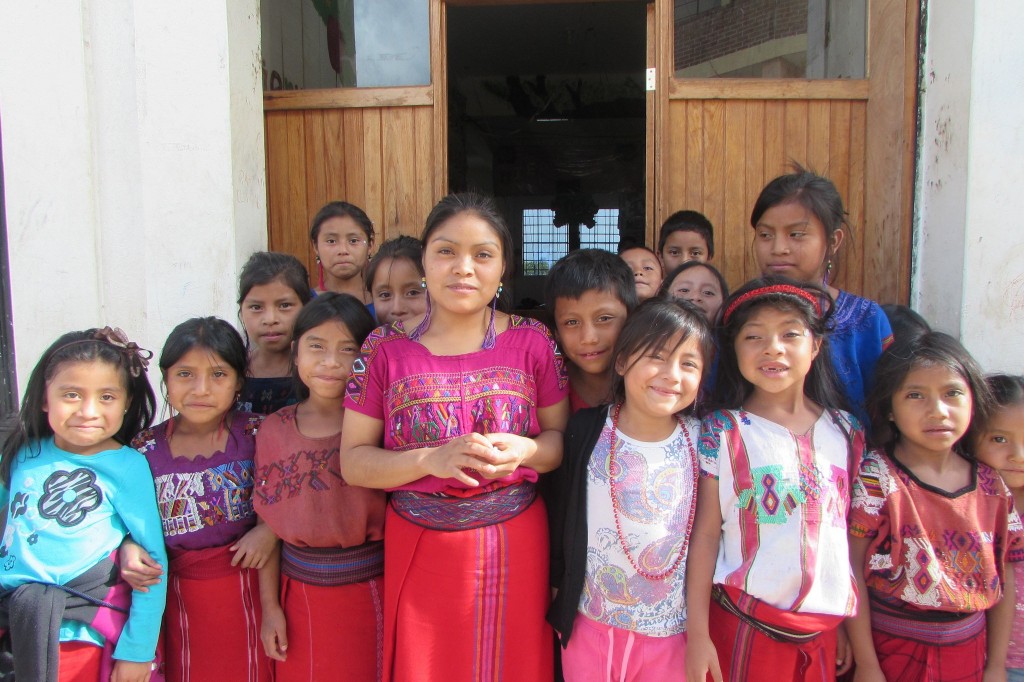 This project will enable a local female staff to educate and empower indigenous girls and women living in extreme poverty in Chajul. The team will provide education and academic support, career training, life skills workshops, mentorship, and income-generating opportunities, including an artisan program. The beneficiaries are Ixil-speaking women and girls. All are indigenous Maya and predominantly Ixil. LHI’s approach is comprehensive, surrounding girls with a support system that allows them to become informed leaders and role models to drive positive, sustainable development in their community.
This project will enable a local female staff to educate and empower indigenous girls and women living in extreme poverty in Chajul. The team will provide education and academic support, career training, life skills workshops, mentorship, and income-generating opportunities, including an artisan program. The beneficiaries are Ixil-speaking women and girls. All are indigenous Maya and predominantly Ixil. LHI’s approach is comprehensive, surrounding girls with a support system that allows them to become informed leaders and role models to drive positive, sustainable development in their community.
To achieve these goals, LHI will employ its Youth Development Program (YDP), which helps students in grades 7-12 to succeed in school. The program incorporates holistic support services to ensure that girls graduate from high school with the academic, leadership, and professional skills they need to be successful. Girls enter the program at the start of middle school, and as long as they maintain good grades and participate in program activities, they are eligible for six years of support through high school graduation.
These female students and graduates have the opportunity to earn an income and gain professional skills to prepare for careers through work-study, paid internships, and an Artisan Program. Through mentorship, workshops, and positive female role models, LHI develops leadership skills and self-esteem, and encourages girls to delay marriage and childbirth. When they eventually marry, they will be well informed and prepared to make decisions about their families’ size, health, education, and financial situation. The YDP is backed by extensive research regarding best practices in the field. It is primarily a Conditional Cash Transfer (CCT) program. In CCT programs, cash is delivered directly to families, conditional upon meeting education and health participation requirements.
-
- Scholarships: Attending middle and high school in Chajul is costly: students are faced with fees for registration, tuition, uniforms, and school supplies. LHI’s monthly scholarship covers these costs. LHI also provides an annual school supplies packet and feminine hygiene products. Over time, LHI has learned that scholarships are not enough; each of these services removes a barrier, allowing hard-working girls to thrive.
- Mentorship and Life Skills Training: To ensure girls are ready not just for school but for life, LHI provides workshops covering a range of critical themes, including reproductive health. The experienced LHI staff serve as role models and mentors and periodically check on their academic and personal well-being. LHI staff review report cards each semester and provide counseling to any student at risk of failing classes. LHI also provides weekly tutoring classes and computer classes. In cases of behavioral problems, staff meets with youth and parents to address the issues. Both parents are required to attend an annual meeting detailing LHI’s program and expectations, and at least three workshops each year. In addition, the LHI Program Manager provides individual counseling to youth at least twice per year. LHI provides parental workshops on domestic violence, gender equality and positive communication. All students are required to remain unmarried until they have completed LHI’s program. Over the past two years, no female scholars dropped out due to marriage or pregnancy. One student who became pregnant and dropped out in 2013 received extensive counseling and support and returned to the program in 2015.
- Quality Education: All middle school girls attend LHI’s partner school, San Gaspar, where they make up about a third of the student body. San Gaspar provides the highest quality education available in Chajul and collaborates with LHI to improve educational opportunities. LHI also provides teacher training, educational materials, and support for facility upgrades, to ensure scholars receive the best possible instruction. Many workshops are run by Peace Corps volunteers in Chajul in collaboration with LHI’s local staff. In addition, Child Aid and Starfish One by One provide training for staff and students. Starfish One by One is LHI’s main thought partner. Finally, LHI also collaborates with AGEXPORT to train its staff and artisans, design new products, and find buyers in its Artisan Program. In total, the program will provide eight workshops for girls and young women, three workshops for parents, plus 60 hours of tutoring and 80 hours of computer classes to each girl.
- Intensive Spanish: Ixil-speaking youth struggle to succeed in Spanish-language middle and high schools. LHI’s four-week Intensive Spanish courses respond to a crucial need and prepare youth for school and public life. Ixil or Quiché is the primary language spoken in student homes, with barely half of all parents able to speak basic Spanish. The program will provide 80 hours of intensive Spanish classes to incoming middle school girls and 40 hours of Level 2 intensive Spanish classes to girls in their second year or higher as needed.
- Library and Learning Resources: Underfunded schools, four-hour school days, illiterate parents, and crowded, smoky homes make it difficult for students to study. To compensate, LHI offers tutoring, computer classes, computer lab access, and membership to Saber Sin Límites (“limitless knowledge”), the first and only library in Chajul. It provides a space, trained local librarians, and programming enabling 500 active library members to enjoy a collection of 8,600 books.
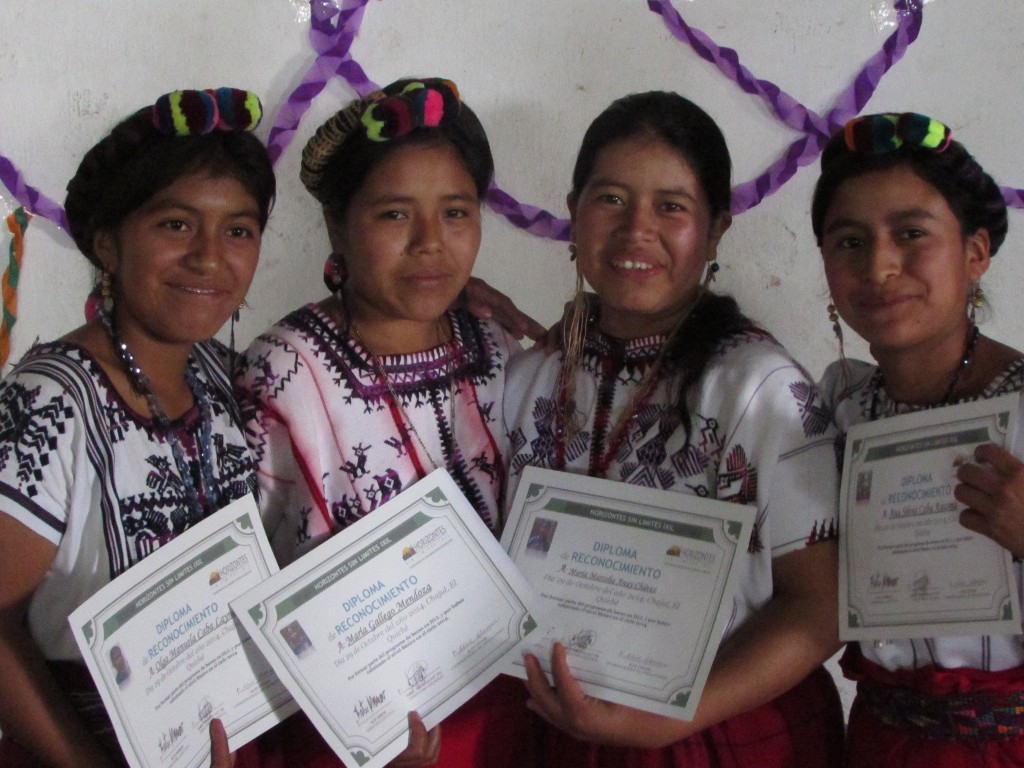 Career Preparation: Youth have little guidance after graduation in pursuing higher education and entering the workforce. LHI researches high school, university, and career options, provides career panels, hosts mock interviews, and supports students and graduates with job searching, applications and interviewing skills.
Career Preparation: Youth have little guidance after graduation in pursuing higher education and entering the workforce. LHI researches high school, university, and career options, provides career panels, hosts mock interviews, and supports students and graduates with job searching, applications and interviewing skills.- Work to (L)earn: LHI’s work-study program allows girls to earn an income while gaining experience working in LHI’s office or library.
- Paid Internship: Through the Internship and Training Initiative, high school graduates develop their professional skills, gain work experience, and earn an income. Interns attend three hours of training each week to develop their leadership skills and work on career and personal goals. The program will provide 15 – 25 hours of work per week for each intern.
- Artisan Program: This adjunct program supports more than 30 mothers of YDP students and 10 female YDP graduates. These women learn how to put their weaving skills to work to earn a fair wage to support their children’s or siblings’ education and supplement their household income. The program will provide three workshops and 15 – 80 hours of work per month for each artisan.
Over two years, 110 girls and women will participate in the program. Program goals include:
- 85 percent will graduate from middle school and 85 percent will graduate from high school
- 60 percent of the high school graduates and 75 percent of interns will attend university or obtain employment within one year of graduation;
- at least 60 percent of scholars’ mothers will participate in the LHI artisan program.
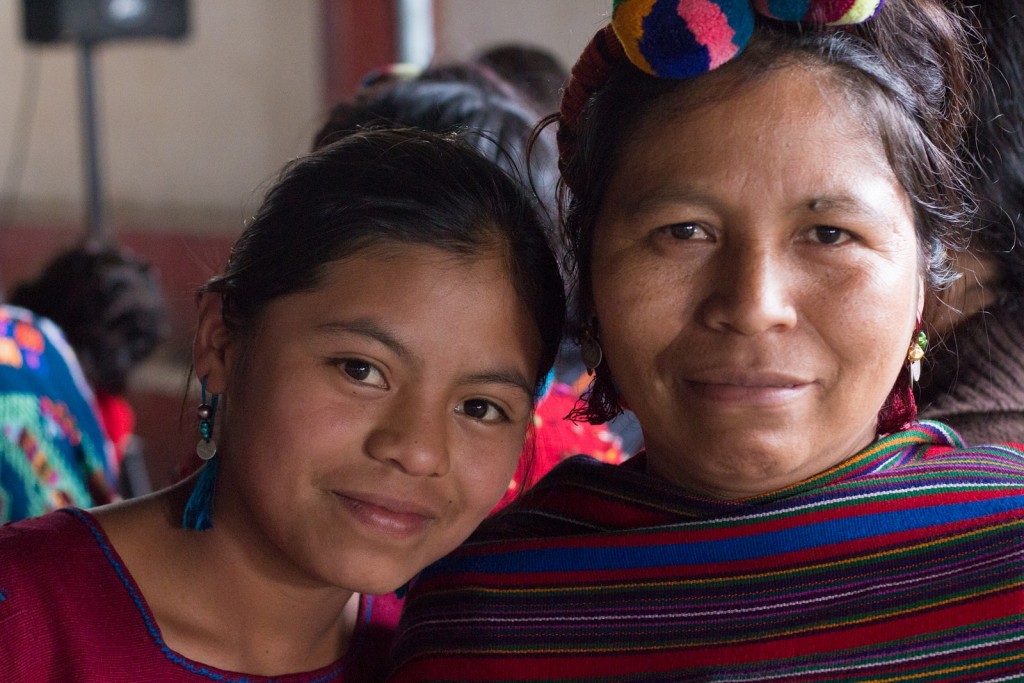 The long-term goal of the project is to empower girls and women with the academic and professional skills needed to create positive change in their lives and community. There is significant research illustrating the impact of girls’ education on combating poverty, improving health outcomes, and increasing economic security. Increasing girls’ educational attainment reduces teenage pregnancy and early marriage. Evidence also suggests that girls’ education has an impact on future generations, as educated women use practical family planning, raise children with increased attention to nutrition and health, and support education for their children.
The long-term goal of the project is to empower girls and women with the academic and professional skills needed to create positive change in their lives and community. There is significant research illustrating the impact of girls’ education on combating poverty, improving health outcomes, and increasing economic security. Increasing girls’ educational attainment reduces teenage pregnancy and early marriage. Evidence also suggests that girls’ education has an impact on future generations, as educated women use practical family planning, raise children with increased attention to nutrition and health, and support education for their children.
LHI’s economic empowerment model for mothers of YDP youth has three tenets:
- All scholarship payments are given directly to mothers so they have decision-making power over their children’s education.
- All mothers can earn additional income through LHI’s Artisan Program, promoting the value of their craft, and enabling them to financially support their families.
- Workshops for all parents on a range of topics including domestic violence, financial literacy, and family planning give mothers vital information to make informed decisions for themselves and their families. These workshops also prepare fathers to support empowerment of women and girls at home.
Selected students will have significant financial need, academic potential, strong motivation, and a basic level of family support. YDP students’ mothers and YDP graduates are eligible for participation in the Artisan Program. YDP families have an average of five children, live in small homes with 2.5 rooms, and have an average monthly income of Q590 ($76) which is below the extreme poverty line of $1.25 per person per day. Nearly half of the parents in the YDP are illiterate and 24 percent completed elementary school. Being a part of LHI has influenced parents to support not only their YDP scholar but also other daughters. LHI also supports over 20 boys in the YDP each year (funded separately) to ensure the girls grow alongside informed young men and will have male peers who understand the importance of girls’ education and women’s issues.
Sustainable Development Goals
![]()
![]()
![]()
![]()
Questions for Discussion
- How do you think this program might change society in Chajul?
- Why is it imperative that parents participate in the workshops and other components of the program?
- Why is learning to speak Spanish an important component?
How the Grant Will be Used
DFW’s grant of $50,000 over two years will support this project primarily through scholarships for beneficiaries, earnings of artisans and interns, program supplies, contracted services for tutors, workshops and Intensive Spanish teachers, and technology and communications needs.
Year 1- Direct impact: 95, Indirect impact: approximately 165 female family members of students
Year 2- Direct impact: 110, Indirect impact: approximately 190 female family members of students
Why We Love This Project/Organization
We love this project because it enhances the lives of indigenous women and girls through education and economic empowerment and sets the stage for generations to come.
Evidence of Success
After 11 years of working exclusively in Chajul, YDP graduates now earn higher wages, attend university, and make informed decisions for their families. Primary schools in many villages have achieved gender parity, and with LHI’s scholarship program, the partner middle school now serves an equal number of boys and girls. Between 2005 and 2015, 121 girls entered the YDP. Of these, more than 80 percent graduated from middle school or are still enrolled, and LHI’s graduation rate has improved over time. Of the students who started middle or high school in the YDP in 2013, 95 percent graduated in 2015. LHI has opened doors for 29 girls to graduate from high school – an incredibly challenging endeavor for a Chajul girl. Now 20 of these LHI girls are attending university and/or have paid employment, and three of them were among the first Chajulense women to graduate from college. More than 90 percent of students stated in focus groups that they would not have attended middle school without the YDP, but instead would have been working in the fields or weaving at home.
Voices of the Girls
Sometimes I don’t understand my math homework, so I go to the library and they help me. But even when I don’t have any homework I need help with, I still go for book club and story hour. I like to read and there are always fun things to do there.
- Manuela Egidia, current Limitless Horizons Ixil scholar and library member
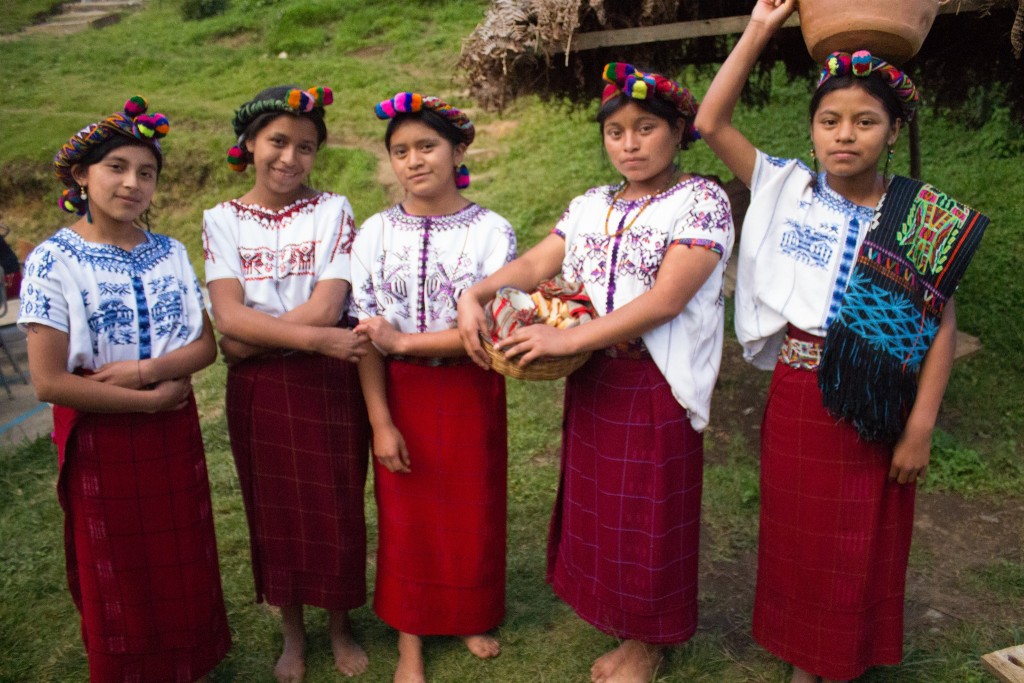 We are grateful to Limitless Horizons Ixil for giving our daughter this opportunity. Her father and I didn’t study, and her three older brothers left school after sixth grade and did not enter middle school because we couldn’t afford it. Egidia is the first one in our family to study beyond elementary school.
We are grateful to Limitless Horizons Ixil for giving our daughter this opportunity. Her father and I didn’t study, and her three older brothers left school after sixth grade and did not enter middle school because we couldn’t afford it. Egidia is the first one in our family to study beyond elementary school.
- María, mother of Manuela Egidia, current Limitless Horizons Ixil scholar
I am grateful that I was given the opportunity to attend middle school and high school with Limitless Horizons Ixil, but more importantly, I have learned about my right to get an education. Since graduating high school, I have been able to go to university with Limitless Horizons Ixil’s support while also being able to get real-life experience working in the office. I have been able to develop my skills here, especially learning how to supervise others and organize my time. I am in my final year of my bachelor’s degree in business administration and I hope to get a master’s degree in finance as my next step. My long-term goal is to own a business where I can employ others and train them in business management.
- Ana Eymi, Limitless Horizons Ixil alumna and current Program Associate
My family didn’t have a lot of money, so I wasn’t going to get to go to school. My sister heard about Limitless Horizons Ixil and helped me apply, and I earned a scholarship. I am grateful for the opportunity to go to school, but I also learned a lot through the workshops, field trips, and now my internship and training. Limitless Horizons Ixil taught me how to use computers and to improve my Spanish, which I needed for high school and professionally. I didn’t have any experience working on a team or communicating professionally, but in my internship, I have learned these things. I have also been able to earn and save some money for school and to help my younger siblings study. When they need school supplies, I am able to help them get them. I am starting university next week to study social work, and without Limitless Horizons Ixil, I wouldn’t have had any of these opportunities.
- María, Limitless Horizons Ixil alumna and Artisan Program intern
My sister and I are the oldest of eight children. When we finished primary school, my parents didn’t have the resources to send us to middle school. My mom heard about Limitless Horizons Ixil and helped us apply, and we were both accepted. My family has changed a lot with mine and my sister’s education. We were able to get good jobs when we graduated from high school and earn money. Our father was an alcoholic and used to spend all of the money he earned on himself, but when my sister and I started working, he saw our contributions and changed. Since then, he has supported us more and given more money to my mom and siblings. With Limitless Horizons Ixil’s support, I am starting university in two weeks to study school administration.
- Marina, Limitless Horizons Ixil alumna and current librarian
About the Organization
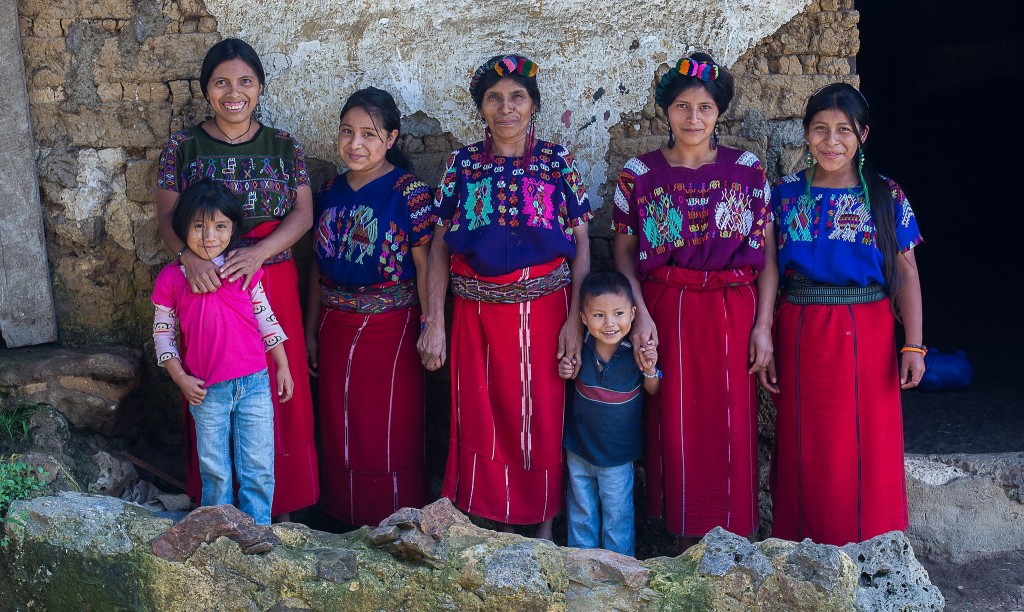 Limitless Horizons Ixil (LHI) was founded in 2004 by Chajul native Pedro Caba Asicona and Katie Morrow to provide access to education for youth living in the Maya Ixil community of Chajul. LHI was founded not only to offer access to education, but to create an informed, empowered generation of leaders – two-thirds of whom would be young women – who could challenge gender inequality and drive positive change in the community. LHI began removing barriers for students early on, initiating a student library and computer lab in 2006, intensive Spanish classes in 2008, career-focused programming in 2009, and workshops and counseling in 2012. LHI began the Artisan Program in 2009 to alleviate economic insecurity of YDP mothers and to demonstrate the value of women’s work in the community. In 2010, the Saber Sin Límites Community Library opened its doors to the whole community of Chajul. In 2015, LHI introduced paid internships and alumni services to help the growing number of high school graduates transition to careers, give back to their community, and support each other. LHI continues to refine and expand its programs in response to Chajul’s evolving needs.
Limitless Horizons Ixil (LHI) was founded in 2004 by Chajul native Pedro Caba Asicona and Katie Morrow to provide access to education for youth living in the Maya Ixil community of Chajul. LHI was founded not only to offer access to education, but to create an informed, empowered generation of leaders – two-thirds of whom would be young women – who could challenge gender inequality and drive positive change in the community. LHI began removing barriers for students early on, initiating a student library and computer lab in 2006, intensive Spanish classes in 2008, career-focused programming in 2009, and workshops and counseling in 2012. LHI began the Artisan Program in 2009 to alleviate economic insecurity of YDP mothers and to demonstrate the value of women’s work in the community. In 2010, the Saber Sin Límites Community Library opened its doors to the whole community of Chajul. In 2015, LHI introduced paid internships and alumni services to help the growing number of high school graduates transition to careers, give back to their community, and support each other. LHI continues to refine and expand its programs in response to Chajul’s evolving needs.
Where They Work
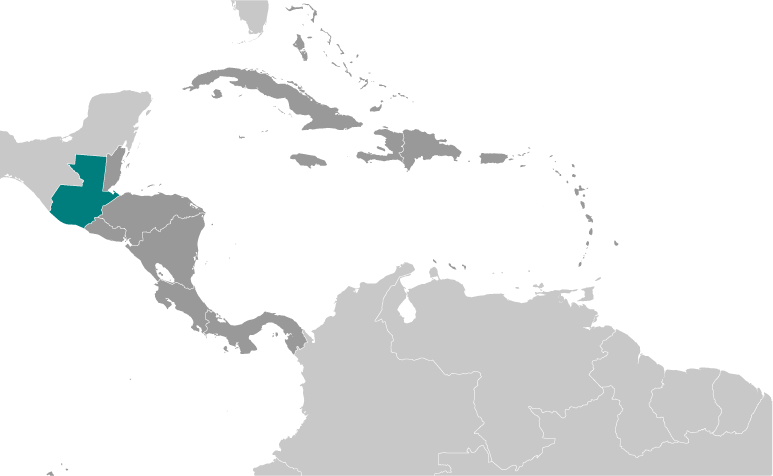 Chajul is nestled in the highlands of Quiché, one of Guatemala’s 22 geographic departments and among the poorest areas in Latin America. It is temperate, with temperatures ranging between 50 and 70 degrees all year long. Its 32,000 residents are Maya Ixil, an indigenous group that was the target of genocide during Guatemala’s 36-year civil war. The war resulted in significant emotional and physical violence, displaced land, and separated families. Although it officially ended with the 1996 Peace Accords, the struggle to recover is far from over.
Chajul is nestled in the highlands of Quiché, one of Guatemala’s 22 geographic departments and among the poorest areas in Latin America. It is temperate, with temperatures ranging between 50 and 70 degrees all year long. Its 32,000 residents are Maya Ixil, an indigenous group that was the target of genocide during Guatemala’s 36-year civil war. The war resulted in significant emotional and physical violence, displaced land, and separated families. Although it officially ended with the 1996 Peace Accords, the struggle to recover is far from over.
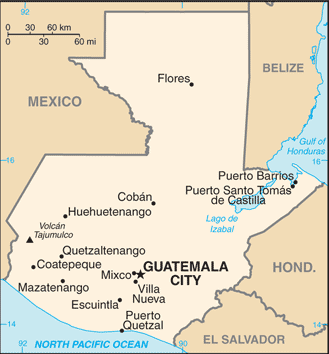 The people of Chajul are limited by many barriers to economic and community development, including political marginalization, physical distance from city resources, a lack of affordable and quality schools, and a lack of employment. Only 5.6 percent of households have someone who earns a salary in the formal economy. Most inhabitants are also cut off from the broader area by language as well, as many adults only speak Ixil, which is only understood within a 45-minute radius of the town’s center. Opportunities for women are basically non-existent, and family and gender-based violence is common.
The people of Chajul are limited by many barriers to economic and community development, including political marginalization, physical distance from city resources, a lack of affordable and quality schools, and a lack of employment. Only 5.6 percent of households have someone who earns a salary in the formal economy. Most inhabitants are also cut off from the broader area by language as well, as many adults only speak Ixil, which is only understood within a 45-minute radius of the town’s center. Opportunities for women are basically non-existent, and family and gender-based violence is common.
Chajul is a subsistence farming community and food insecurity is the norm. Almost all residents live in poverty and struggle to feed themselves and their families on an average income of $2 per day. The mainstay of the diet is corn, and it is not unusual to hear the clapping sound of tortillas being made throughout the town. Three out of four first graders have stunted growth, a symptom of extreme malnutrition. Less than 1 percent graduate from high school and only 5 percent from middle school because they are forced to help support the family household. This results in 75 percent of the adult population being illiterate. Many families live in one-room adobe houses with dirt floors and open fires for cooking. The constant smoke gets trapped inside, which leads to serious and sometimes fatal respiratory illness. A lack of clean water is also a problem, causing numerous diseases.
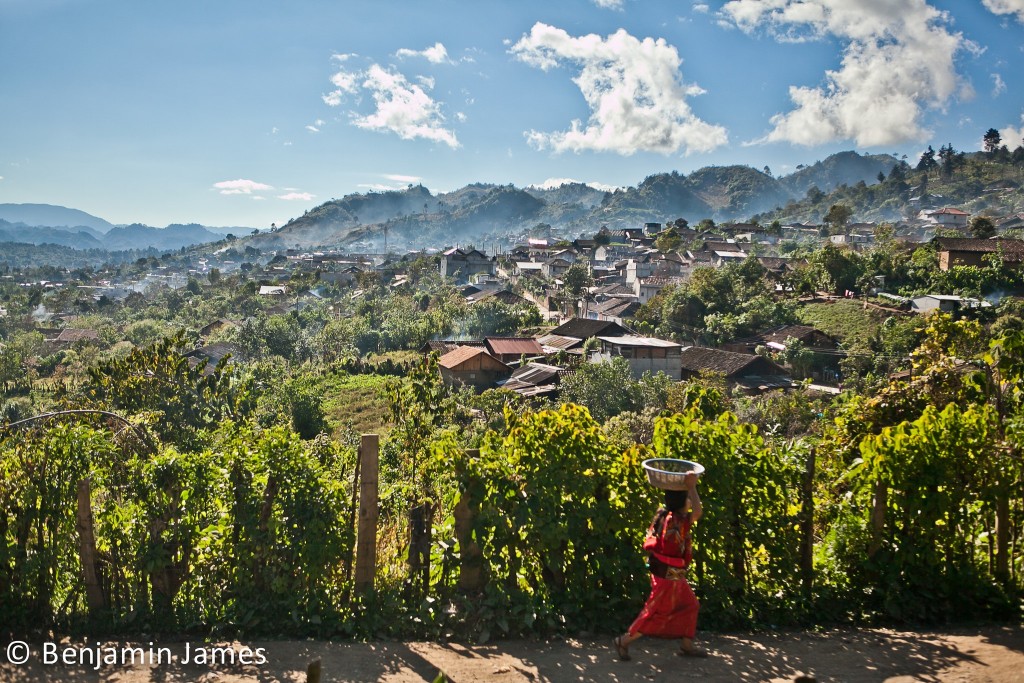 A closer look at civil war and genocide in Guatemala
A closer look at civil war and genocide in Guatemala
The Guatemalan Civil War, a result of profound economic and political inequality, occurred from 1960 – 1996 and left 200,000 dead. It was fought between the Guatemalan government and various leftist groups supported by the rural poor, including the Ixil. The most horrific period occurred in 1982 when General Ríos Montt came into power through a coup. Just one month after assuming his dictatorship, Ríos Montt launched a “scorched earth” offense on the country’s Ixil Mayans. These military campaigns were not as targeted as those in the cities, where labor and student leaders were identified as enemies of the state and were ultimately nabbed and killed. Instead, under Ríos Montt’s dictatorship, the army identified all the Ixil as guerilla supporters and subsequently annihilated over 600 villages.
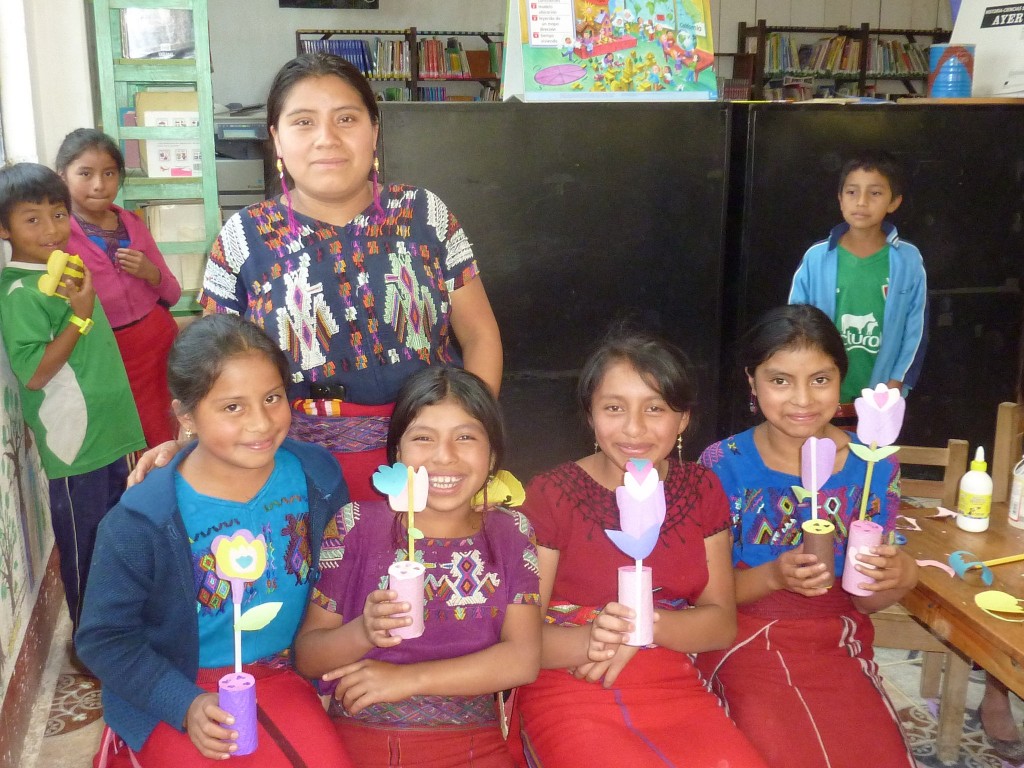 Ríos Mott’s forces sectioned off each village, gathered the residents, separated the men from the women and then slaughtered them all. Those who escaped were hunted by helicopter. In addition, an estimated 1.5 million Mayans were forced to live in concentration camps or to work the fields of large land owners. The Ixil Maya were the victims of extreme torture, mutilation, rape, and violence against their children. Today, this genocide is called the “Silent Holocaust.”
Ríos Mott’s forces sectioned off each village, gathered the residents, separated the men from the women and then slaughtered them all. Those who escaped were hunted by helicopter. In addition, an estimated 1.5 million Mayans were forced to live in concentration camps or to work the fields of large land owners. The Ixil Maya were the victims of extreme torture, mutilation, rape, and violence against their children. Today, this genocide is called the “Silent Holocaust.”
Ríos Montt’s reign only lasted 17 months, but it was undeniably the bloodiest period in Guatemala’s history. In 2013, Ríos Montt gained further notoriety when he became the first former head of state to be tried for genocide by his own country’s judicial system. He was found guilty and sentenced to 80 years in prison. However, the sentence was reversed days later because of alleged judicial anomalies. Today, at age 90, although he is accused of killing 1,071 Ixil people, he was suspended from trial due to health reasons.
As for the remainder of Guatemala’s civil war, the conflict ended in 1996 with the Oslo Accords. In 1999, the United Nations released a report, “Guatemala: Memory of Silence,” which described how the Guatemalan government carried out a policy of genocide against the Maya. The report was specific in noting that the army committed genocide against four specific groups, including the Ixil.
Source Materials
http://cja.org/where-we-work/guatemala/
http://www.globalsecurity.org/military/world/war/guatemala.htm
http://limitlesshorizonsixil.org/community_of_chajul/

